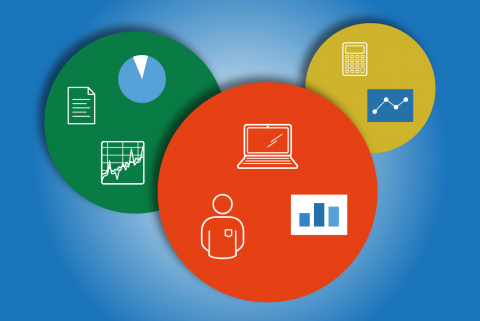No one would argue that the CIO's job is getting any easier. With technology changing at an increasingly rapid pace, and CEOs seeing tech more and more as a competitive differentiator, the pressure to get everything right has never been higher, and the challenges of new technology have never been so daunting.
How can CIOs cope? Ty Rollin, CTO of the mobile technology company Mobiquity, has some useful advice about how to handle three of the growing trends that are making this difficult job even more complex.
- Consumerization: When it comes to developers, Rollin says, the battle to control what tools and apps they use is pretty much lost. "We have reached the point of no return," he says. "Frustration from developers leads to one conclusion — revolution. They have started the process to completely usurp controls established by IT. For the remainder of the workforce, he says, it may not be too late. "But act fast, because they most likely have a better experience at home than at work," Rollin warns. "Ask yourself why they should come to work? Do they have better Internet at home with fewer problems? Do you have tools that make them efficient? Can they work where they want? You must address these questions if you want to succeed in today's world of empowered employees." Rollin recommends several strategies for best serving this new work force. First, IT departments should provide tech tips — at Mobiquity there's a weekly blog that helps employees get the most out of the company's tech tools. Apps should work any place your employees are. "Curate your top applications and ensure visibility to staff," he advises. You should also make sure those apps integrate smoothly with the consumer productivity apps your employees like to use. Create a single sign-on for your users. "Friction in using your apps will create a riot that will never end." And, he says, while it's important to focus on security and data, "Be flexible."
- The speed of technological change: "The speed of technology change is accelerating at an epic proportion and so are security breaches," Rollin says. "A key ingredient in the mix is the API economy, where standards for services have leveled the playing field of incumbents and new entrants." For CIOs, he says, this suggests taking a new approach to vendor relationships. To begin with, he says, vendor lock-in is now dead. "So are business models that prey on ill-informed vendor selection for an extended period without performance levers and utility-driven pricing." To keep from getting caught in this trap, he counsels signing contracts of no more than a years' duration. "You will want to get out of them for more flexibility. Move into a monthly, utility-based pricing model instead." In addition, he says, you now need data retention in services. "This enables 'data replay' capabilities for future services. And keep those possible future services close at hand by integrating alternative vendors into your system so that they are online and in use, in tandem with your principal vendor." To keep maximum flexibility, he recommends assuming that any service you have is always replaceable, and that you should lock in minimum capacity and leverage elastic pricing solutions. "Stream all user interaction and analytics raw data to your own repository," he adds. "Then you can leverage tools to map this data to new services." Another result of the rapid pace of change is that legacy chickens are coming home to roost. "Lack of managing technical debt from the past is building up a tsunami of epic proportion," he says. "If 70 percent of your IT budget is in maintenance and integration you won't be able to keep up. Address technical debt as part of your budget now." At Mobiquity, he adds, "We're committed to vet new emerging technology tools frequently as well as continuously paying down technical debt."
- Big Data: "In 2014, most businesses figured out how to process big data," Rollin says. "For 2015 and beyond, there is a whole new set of questions to be answered. How do you build a data-driven business? What insight can be found within the data? How quickly must it be processed to be useful? When we learn something what is our feedback channel? What is the quality of data from an API?" In 2014, he adds, many data ownership questions went unanswered. "Should data live in centralized, regionalized, or application-specific data stores? And who should own them, the CIO or the lines of business?" The reality is that business units and functional teams are actively building their own isolated data stores, he says, making a centralized approach less and less viable. "This leads to data partitioning, fueling the need for a framework to orchestrate data across a large number of separated systems," he says. "How do CIOs fit into this model?" Not all the answers are clear, but at Mobiquity, IT has been creating new analytics dashboards and building a cloud-based data platform. "Visibility into real-time data is a must for enterprises," he says. "De-duping is also a must because storage is cheap and companies get lax and allow multiple versions to live forever." It isn't easy to manage big data across an enterprise, he says, but, "Dashboards are a good starting point."
ALSO READ
In a recent survey of more than 300 IT professionals across North America, participants were asked what they saw in terms of changes to infrastructure and changes to the IT landscape in the next few years, Scott Koegler writes about the few things that stood out to him in, "IT departments are dealing with a highly complex mix of new technologies."
Ty Rollin is Chief Technology Officer of Mobiquity. Named to the TodaysWirelessWorld.com list of Top 100 Wireless Technology Experts for 2014—The Wireless WavemakersTM,Ty Rollin oversees the company’s core technology and development efforts, including driving strategic insight for client solutions. He spearheads Mobiquity Labs, an applied technology lab environment that explores the feasibility of emerging technologies. Ty joined Mobiquity from KMDM, where he oversaw the design and implementation of iPhone-, iPad-, Android- and BlackBerry-based solutions for Fortune 100 media companies. Rollin specializes in leading people, programs and teams; orchestrating complex development projects; and overseeing technology programs. He has held various executive positions, including CTO of Mindgauge; CTO and co-founder of 211Me; founder and president of React Software; and CTO of xCellaSave. Rollin has a masters in electrical engineering from Worcester Polytechnic Institute and a Bachelor of Science in Computer Engineering from Villanova.




